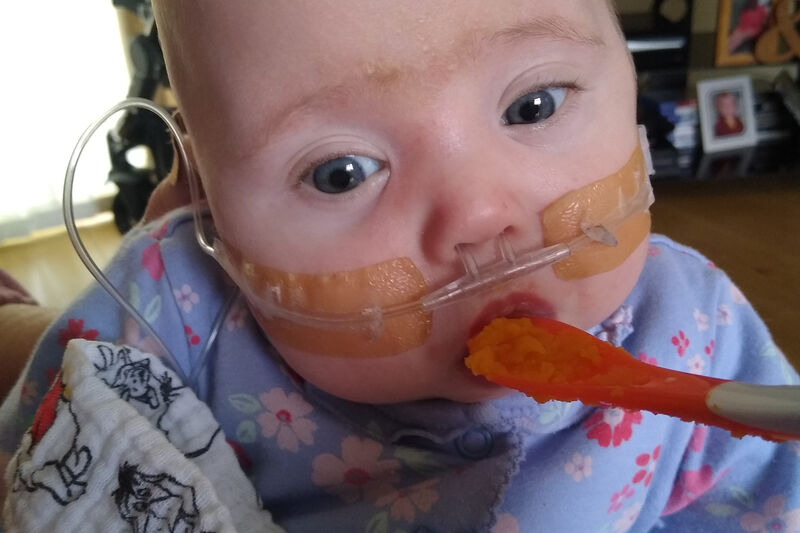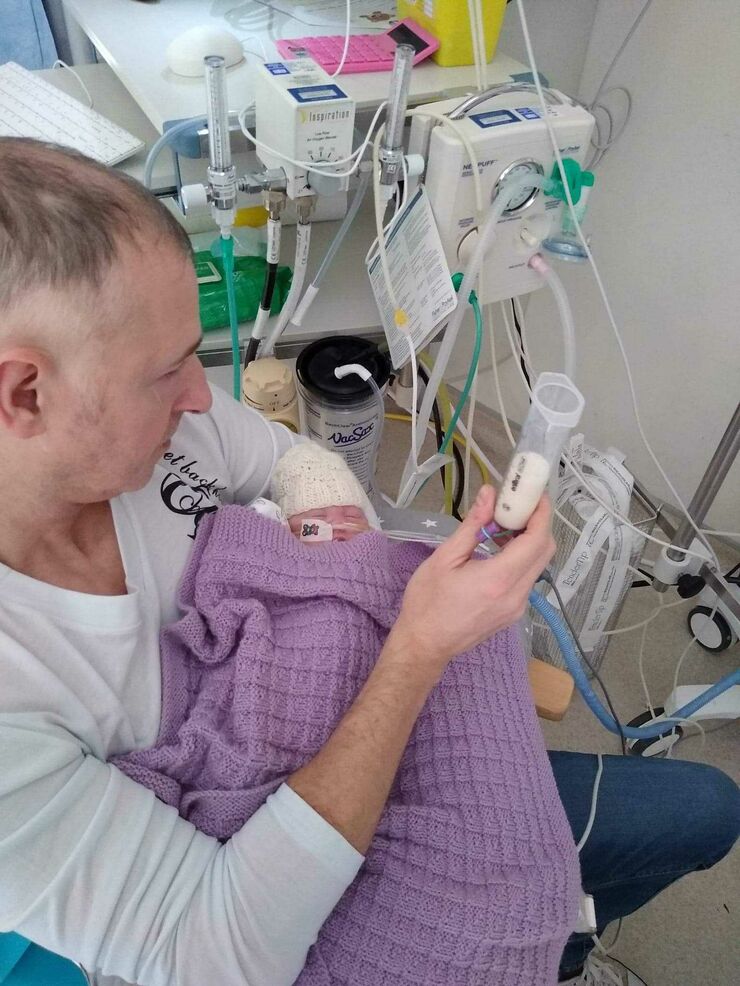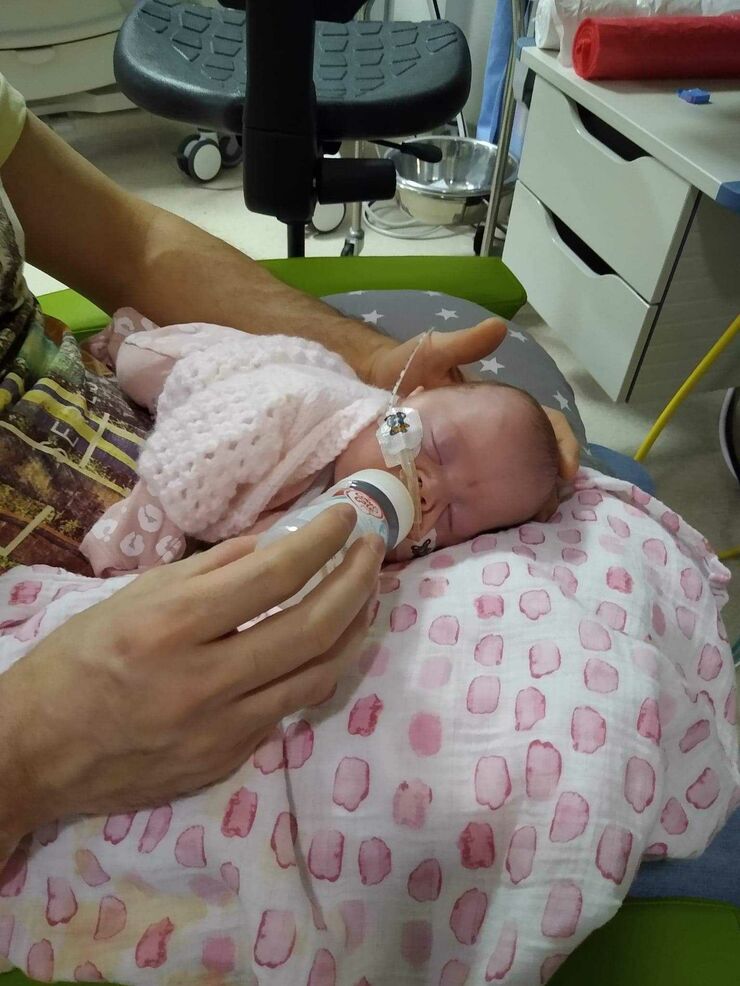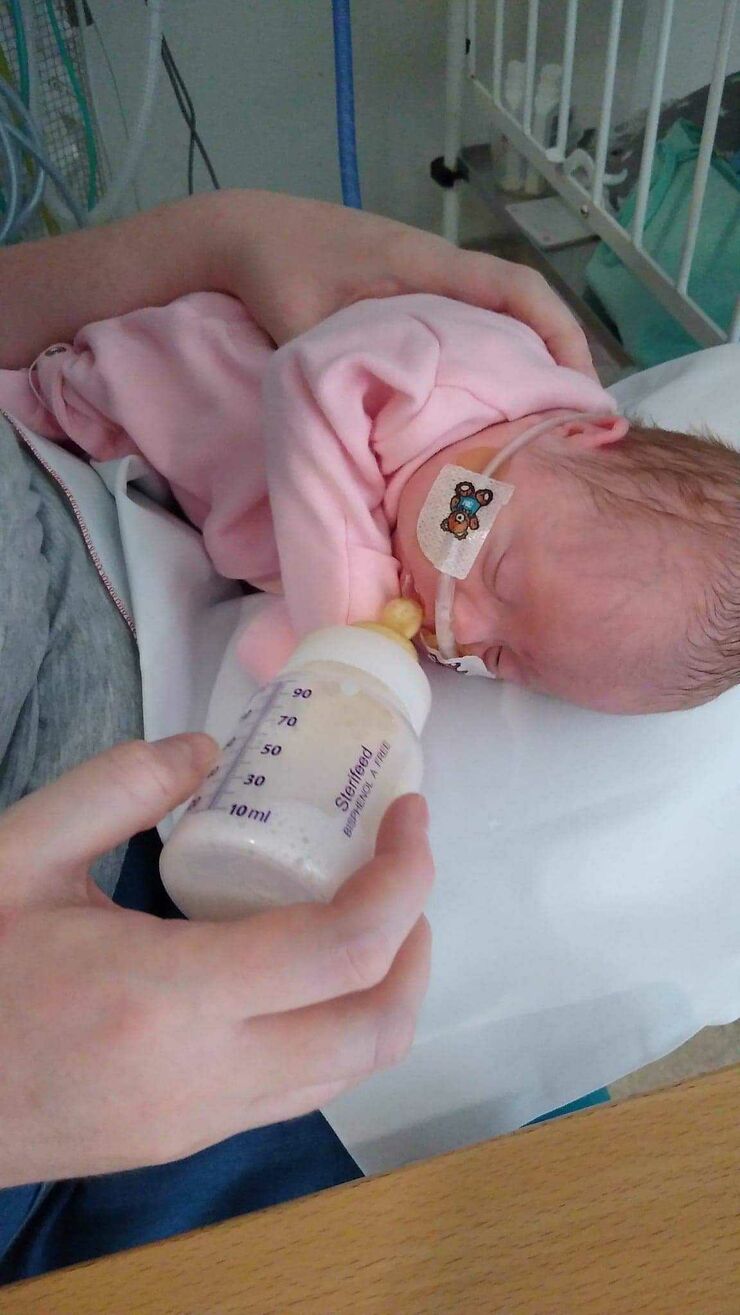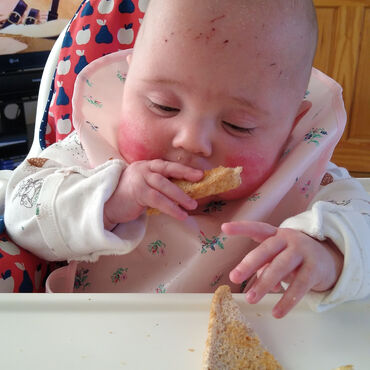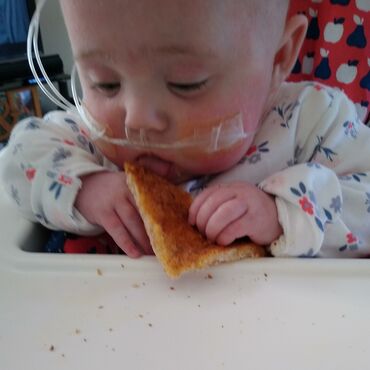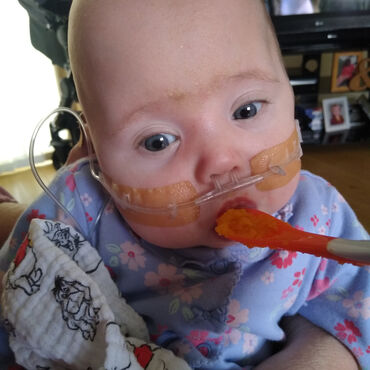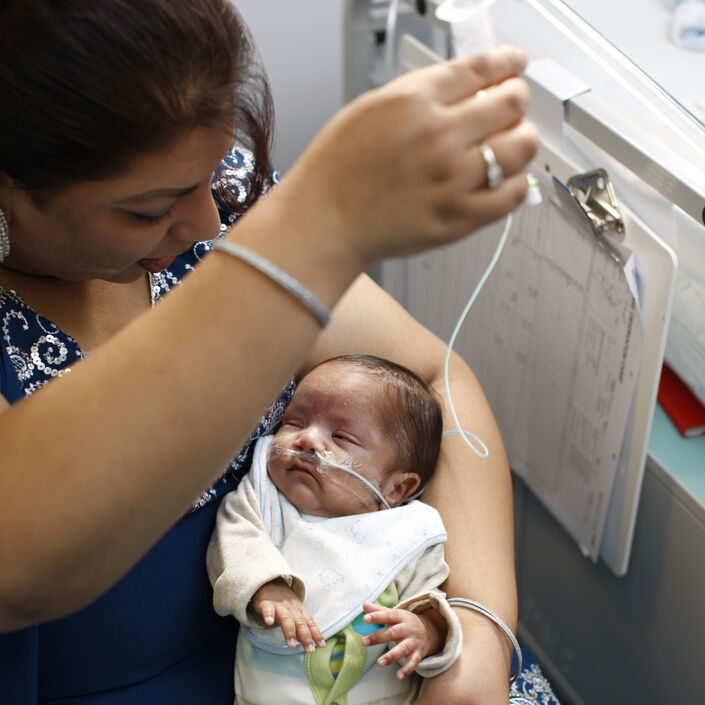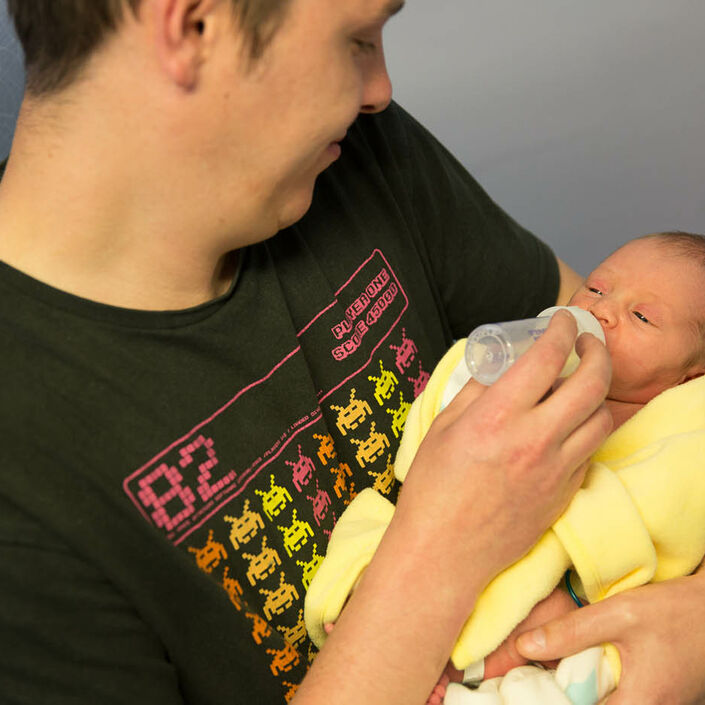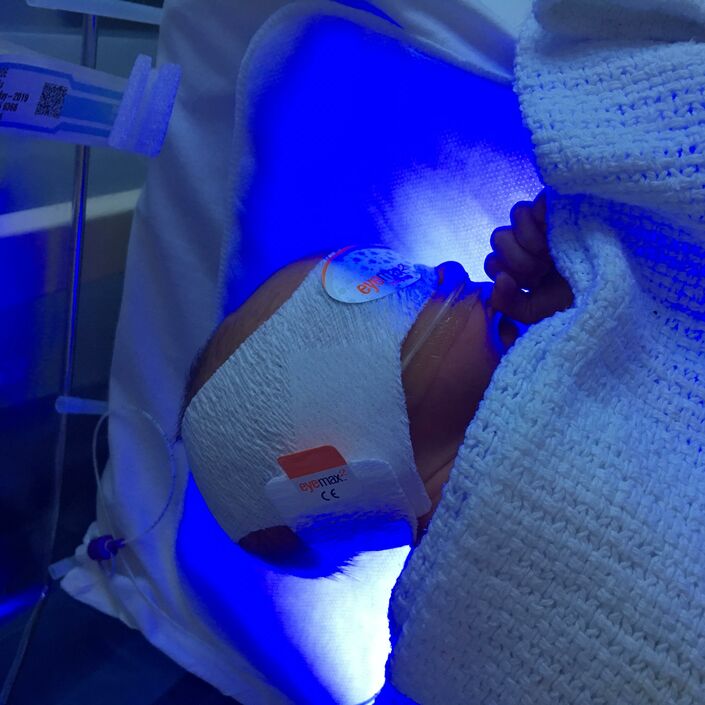When I found out I was pregnant, I had lots of plans of what it would be like when our baby arrived, which included breastfeeding. But all our plans had to change as my daughter Josie didn't want to wait until her due date of New Year's Eve to see the world. She was born 16 weeks early at 23+6 weeks.
Seeing how tiny and fragile she was, the thought of touching, let alone feeding her terrified me. In the couple of days leading up to her birth, I didn’t even think of giving her my milk. All I could think about was the birth itself and hoping she would survive. So, I probably wouldn’t have expressed if it wasn't for the amazing midwife at Royal Bolton Hospital who helped me to hand express within 30 minutes of Josie being born and gave that milk to Josie not long after.
The midwife gave me a pack which had an expressing diary and two bonding patches in the shape of love hearts – one for me and one for my little girl. When she was born, Josie’s heart patch was bigger than her head – it’s still in her crib now as a reminder of how far she has come.
After a while of hand expressing, I started to use a pump. I expected lots of milk to come bursting out, but that certainly wasn’t what happened for me, partly because I felt so stressed and nervous. I kept trying to express as much milk as I could for six weeks, but it upset me a lot that I couldn’t produce enough for her. This tiny person weighing 1lb 6oz needed feeding up and I felt guilty that I couldn’t give her what she needed.
